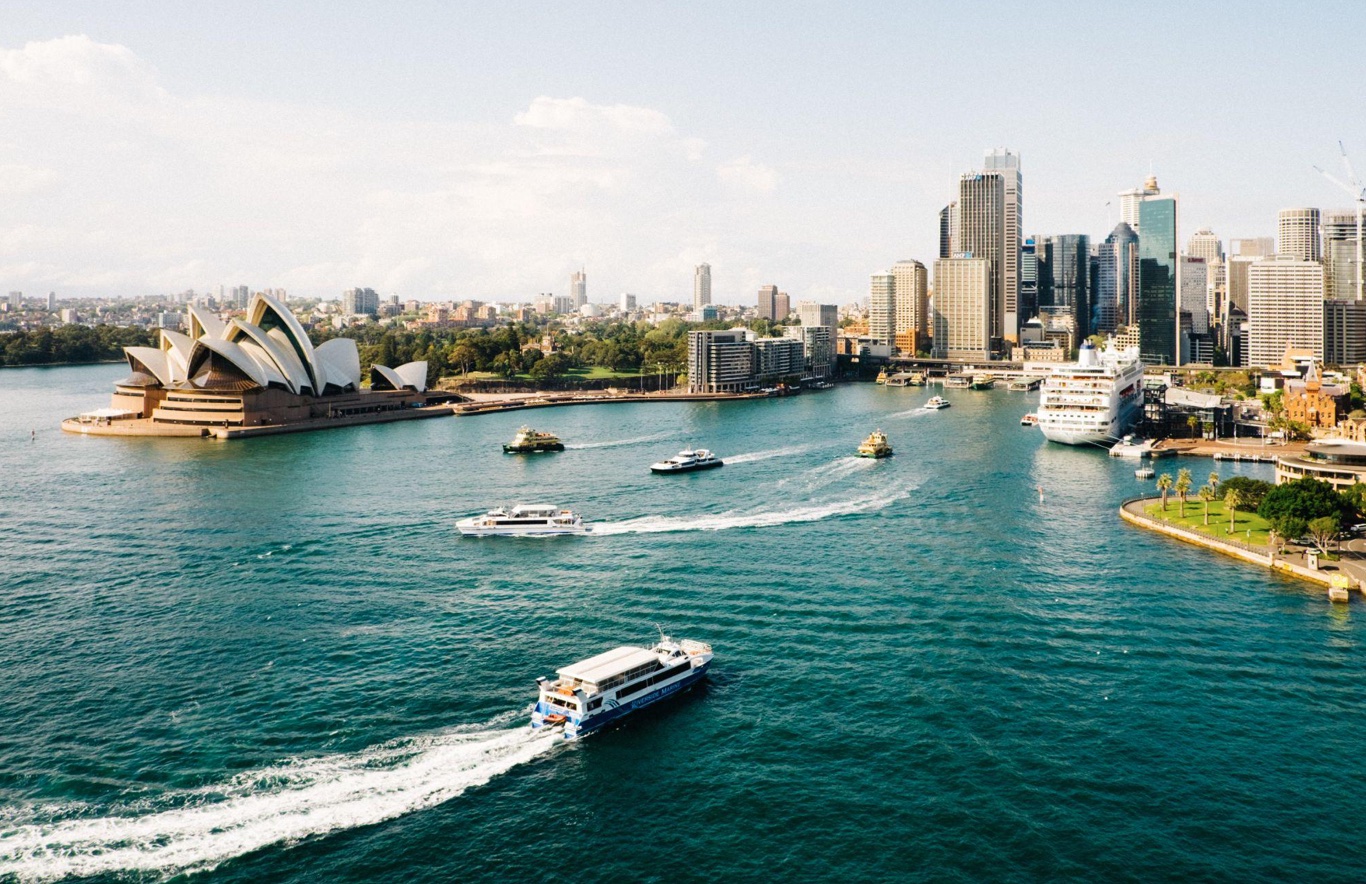Understanding yacht licenses and permits in Australia is crucial for anyone looking to sail on its waters, whether as a guest or a local.
There’s nothing better than sailing on the open ocean. Nobody wants the nuisance of confusing licenses and permits ruining a good time. That’s why brushing up on what’s needed before hitting the waters in Australia is essential.
Chartered yacht vacations make for a trendy and luxurious trip, but anyone interested in doing some sailing themselves needs to learn the ropes. The six states and two territories of Australia have slightly varying requirements for those wanting to sail. Whether sailing as a guest or a local, knowing the ins and outs of yacht licenses and permits is crucial.
Can I sail in Australia as a foreigner?
The answer varies from state to state. Many Australian states will accept boat licenses from other countries for a limited time and ideal for a vacation. Some, however, require local permits and licenses as well. In any case, it’s best to play it safe and ensure your sailing vacation goes without a hitch.
Since the different areas of Australia have different requirements, sailors should plan their routes accordingly.
Yacht licenses and permits in New South Wales (NSW)
Home to Sydney and Melbourne, two massively popular coastal Australian cities, New South Wales is a top pick for those passionate about sailing and renting yachts. In NSW, anyone wanting to operate a vessel over 10 knots needs a boat license.
Typically, this involves a test, but those with experience who can prove it through completing a Boating Licence Practical Logbook are exempt. Anyone spending more than 3 months in NSW needs an NSW boat or personal watercraft (PWC) license. This typically incurs a license fee and requires valid proof of identification.
Yacht licenses and permits in Queensland
Sailing in Queensland requires a marine license for vessels with an engine power beyond 4.5kW. Boaters need a PWC license and a recreational marine license to sail legally.
Queensland marine licenses are valid for life, which is great for travelers wanting to return often. Sailors who pass a BoatSafe online course can certify for various aquatic activities across Queensland. Another benefit of the Queensland system is that sailors don’t need to carry their licenses on the water. Carrying valid identification is enough for the Queensland authorities.
Yacht licenses and permits in Victoria
Victoria has a similar policy to Queensland for prospective sailors. Marine and PWC licenses are strongly encouraged, although only the marine license is legally required. There are a few more specifics for sailing in Victoria, however.
Applicants need definitive proof of identification. Additionally, they need an eyesight test. This, in conjunction with the usual application form and a small fee, certifies any person over 16 to operate a boat with a motor legally.
Yacht licenses and permits in South Australia (SA)
South Australia differs from the other territories because sailors need a valid boat operating license for any vessel with a motor. The power or size of the boat and its engine is irrelevant to the SA licensing scheme.
A theory exam needs to be completed, which costs a small fee. Medical and eyesight certificates must also be presented when applying for an SA boating license. However, the process is somewhat streamlined in SA, as applying for a license immediately upon passing the theory exam is possible.
Yacht licenses and permits in Western Australia (WA)
Anyone over 14 can apply for a Recreational Skipper’s Ticket (RST) in Western Australia. The RST allows sailors to operate any PWC or other vessel with motors over 6hp. Unlike in other territories, a license isn’t technically required to sail. The RST is described as a certificate of competency rather than a specific license.

Applicants are assessed on their ability to demonstrate the basic understanding and practical abilities needed to operate a boat safely at sea. To succeed, the sailor applying for an RST must show their strengths in both practical and theory departments.
Yacht licenses and permits in Tasmania
Finally, the island of Tasmania requires a Motor Boat License for all vessels 4hp and over. As in Queensland, these can only be obtained through completing a BoatSafe Practical Course.
In Tasmania, these licenses remain valid for three years — ideal for frequent travelers looking to sail the area. It’s also possible for aspiring sailors between the ages of 12 and 17 to learn the ropes with a Provisional License.
Make your sailing vacation hassle-free and avoid any legal troubles when traveling to the land down under. There are a lot of different territories in Australia requiring different licenses and permits. But it’s well worth the effort of getting it right. Sailing is a pastime to be passionate about; don’t let licensing ruin it.
Summing up
Understanding yacht licenses and permits in Australia is crucial for anyone looking to sail on its waters, whether as a guest or a local. The six states and two territories in Australia have varying requirements, so it’s essential to plan accordingly.
Most Australian states will accept boat licenses from other countries for a limited period, but some require local permits and licenses. Knowing the ins and outs of yacht licenses and permits can help make a sailing vacation in Australia hassle-free and enjoyable.


Join the conversation!